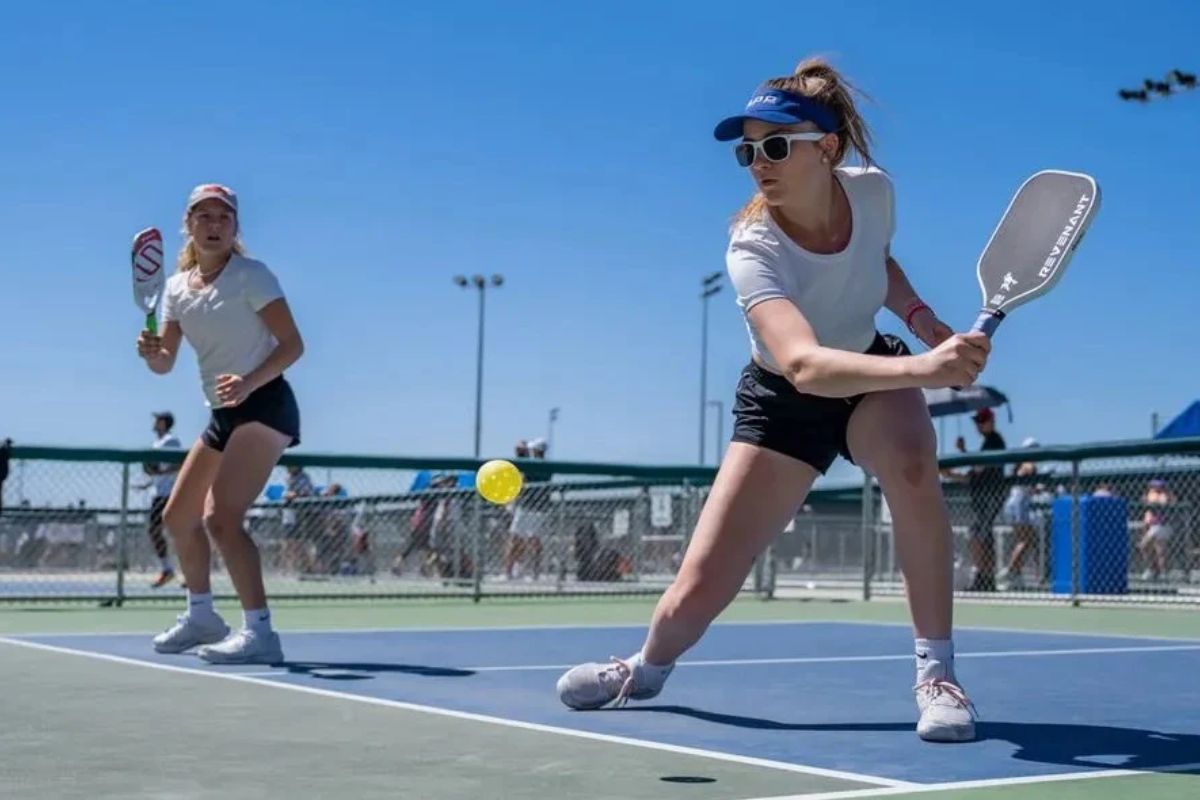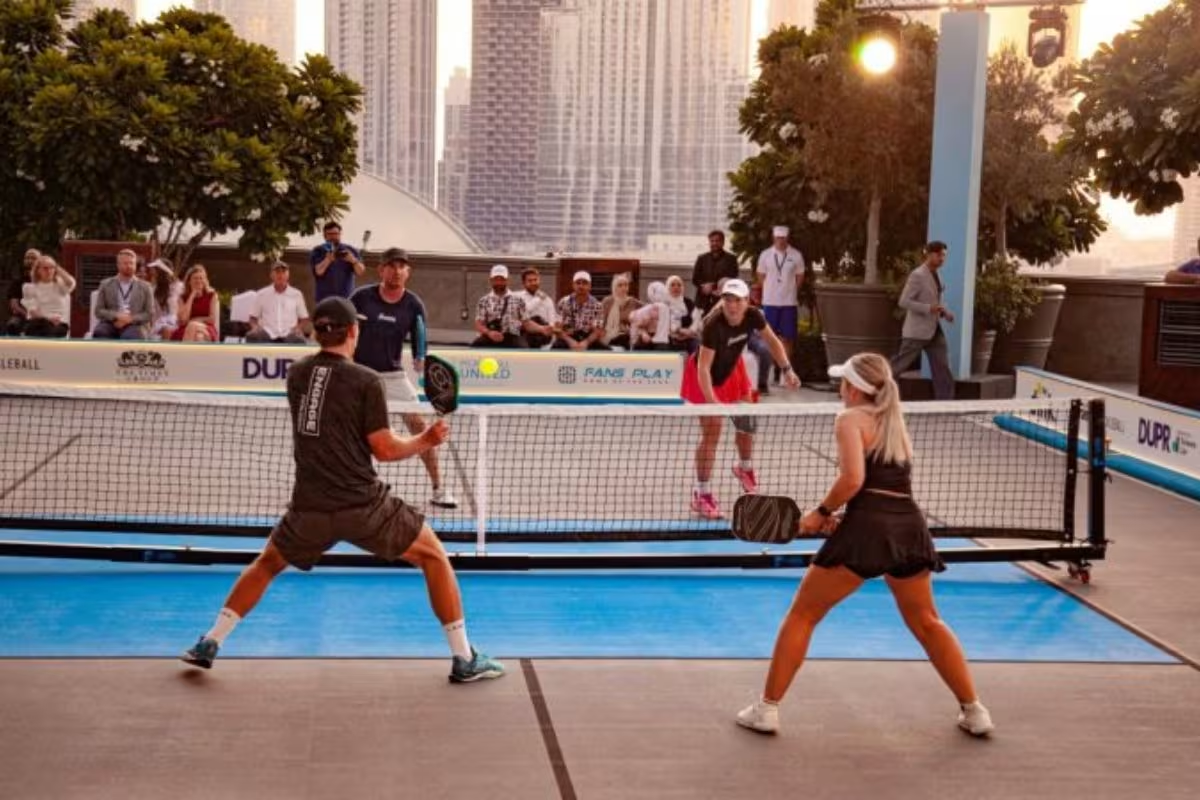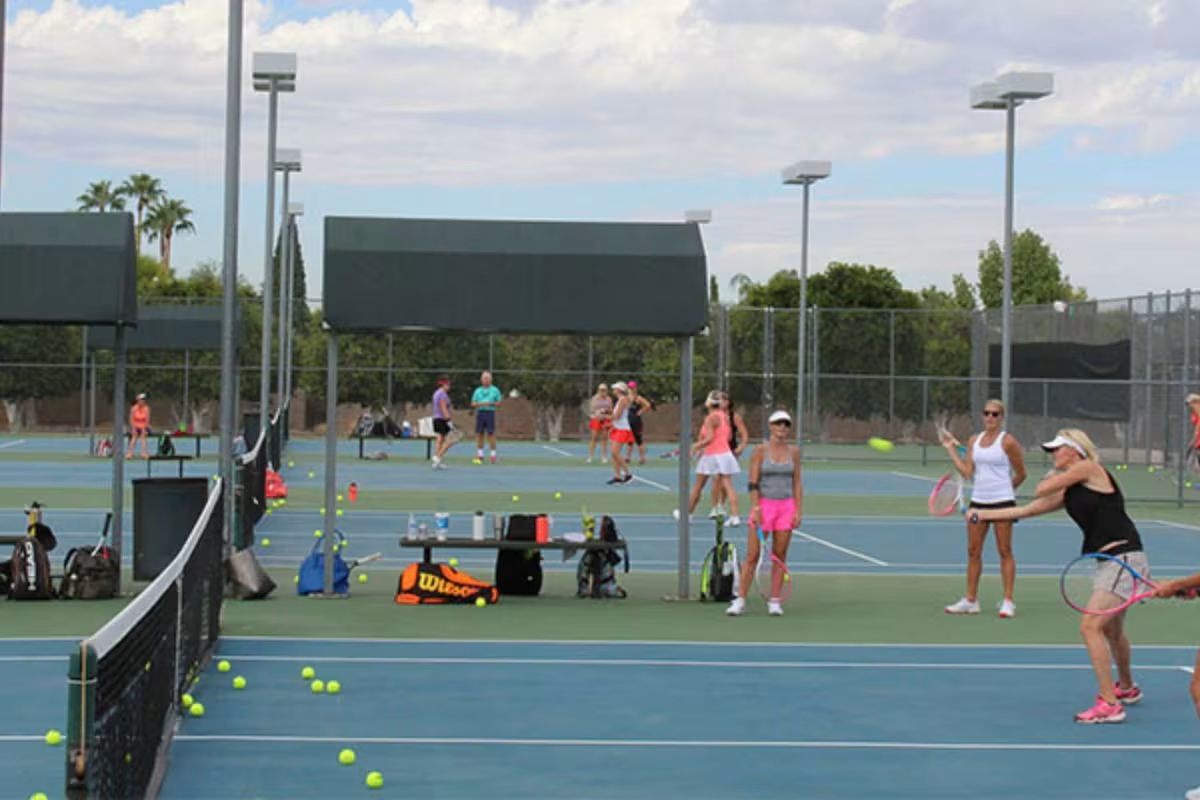Tips to Organize Pickleball Fundraiser: With the rise of “picklin’ for charity” events across the nation, many are eager to learn the best practices for organizing pickleball fundraisers. Hosting such an event goes beyond merely reserving courts and inviting players; it demands meticulous planning, targeted marketing, and a deep engagement with the community. This guide outlines essential steps to ensure the pickleball fundraiser is not just a game, but a substantial contribution to a worthy cause.
Define the Fundraising Objectives
The cornerstone of any successful fundraising event is a clear financial goal. According to John Moore, a board member of Adaptive Pickleball and former tournament director of the Greenville Smash in South Carolina, this target influences every aspect of the planning process, from budgeting to promotional efforts.
“How much are you expecting to make? A lot of tournaments fail because they don’t set a specific financial target.” – (John Moore)
It’s crucial to determine what the raised funds will support, whether a local charity, a national initiative, or specialized programs like adaptive pickleball. After establishing a goal, breaking down potential costs and revenue streams can provide clarity and ensure feasibility.
Key Considerations
- What will the registration fees be?
- Are sponsorships or donations anticipated to help cover expenses?
- Should additional fundraising activities, like raffles or auctions, be included?
Select an Appropriate Tournament Format
Choosing the right format is vital for the pickleball tournament‘s success. While competitive players may favor elimination formats, John Moore recommends round-robin setups, particularly for fundraisers.
“Round robins are easy to plan and run. With 8 teams, you can wrap up the tournament in about three hours. It’s accessible and inclusive, which is important for a fundraiser.” – (John Moore)
This format ensures that all players participate in multiple games, fostering a fun and social atmosphere that aligns with the spirit of fundraising. In contrast, single or double-elimination formats, while competitive, may lead to longer wait times for eliminated players.
Format Overview
- Round-Robin: Promotes inclusivity and faster gameplay; everyone gets multiple matches.
- Single/Double Elimination: Suitable for competitive play but can result in downtime for players.
- Skills-Based Tournaments: Customizes brackets based on skill level, ensuring fairness and competitive balance.
Choose the Right Venue
The selection of the venue is crucial in determining the tournament’s success. It should be accessible, offer sufficient courts, and accommodate spectators. Basic amenities like restrooms, seating, and possibly concession stands enhance the experience for players and their families.
John Moore suggests that four to six pickleball courts are ideal for a tournament with 8 to 12 teams. If anticipating a larger turnout, renting additional courts may be beneficial. For outdoor venues, it’s wise to have a backup date due to weather uncertainties, as highlighted by Wendy Lehman Miller, a tournament organizer.
“We had a makeup day in mind. I’m in NE Ohio where it can be 80 one day and 60 and raining the next.” – (Wendy Lehman Miller)
Pro Tip
If feasible, reserve space for a practice court, allowing players to warm up before matches. This consideration adds value to their tournament experience.
Innovate with Themes and Marketing Strategies
In a competitive fundraising landscape, originality is key. Moore recalls the success of a wrestling-themed “Round Robin Rumble” where players adopted wrestling-style nicknames and posed with custom championship belts.
“The key was making it fun. We used real players in the community, not stock photos, which helped create authentic engagement.” – (John Moore)
Promotional Strategies
- Create Eye-Catching Flyers: Utilize tools like Canva for visually appealing promotional materials. Ensure flyers include links instead of just QR codes, as many view them on social media.
- Use Authentic Imagery: Featuring local players or past events creates a sense of connection and authenticity.
- Maintain Communication: Wendy Lehman Miller emphasizes the importance of ongoing engagement, stating,
“Don’t just communicate a few days before the tournament. You need a steady stream of emails and social posts to keep people engaged.” – (Wendy Lehman Miller)
Cultivate Early Sponsorship Engagement
Securing sponsorships significantly enhances fundraising potential. Both John Moore and Wendy Lehman Miller demand partnerships with local businesses. John Moore suggests reaching out to small businesses like chiropractors and realtors for sponsorship opportunities.
“Hit up small businesses, like chiropractors, realtors, or car dealerships. You can raise a few hundred dollars just by offering logo placements on nets or banners.” – (John Moore)
Wendy Lehman Miller’s team raised $4,000 for their “Doubles Dink for Cancer” event through local sponsors. She recommends leveraging personal connections.
“I asked friends who own companies or work in banks—they were more than happy to help.” – (Wendy Lehman Miller)
Sponsorship Opportunities
- Offer logo placements on nets, T-shirts, or tournament banners.
- Develop tiered sponsorship packages to provide varied exposure levels.
- Collaborate with local businesses for in-kind donations, such as coffee shops donating gift cards for auctions.
Ensure Seamless Logistics on Event Day
Executing a smooth tournament day requires attention to detail. John Moore emphasizes the importance of efficient check-ins and strategically placed hospitality stations.
Setting up a hospitality tent with water, snacks, and shade enhances the experience for participants and can often be sponsored.
“You really can’t mess up the day-of logistics. It’s like going to a restaurant. If the experience is bad, people won’t come back and they’ll tell others.” – (John Moore)
Essential Tips for Event Day
- Volunteers: Aim for one volunteer per five players to ensure smooth operations.
- Connectivity: Ensure multiple hotspots are available for any digital scoring or check-in tools used.
- Backup Plans: Be prepared for unexpected changes, including player dropouts or weather-related issues.
Enhance Revenue with Additional Activities
To maximize fundraising efforts, consider incorporating supplementary activities beyond registration fees and sponsorships:
- Online Auctions: Solicit donations from local businesses for online auctions, allowing non-players to contribute.
- Raffles and 50/50 Draws: Easy fundraising methods that can be conducted during the event.
- Merchandise Sales: Sell T-shirts, water bottles, or branded paddles as a way to generate funds and provide participants with a memento.
Follow Up to Build Community
After the pickleball tournament concludes, it’s important to maintain engagement with players and sponsors. John Moore suggests sharing photos and videos from the pickleball event on social media, tagging participants to encourage sharing.
“We had reps from the charity help with raffles, and they kept in touch with participants afterward. That little extra touch keeps people engaged and wanting to come back next year.” – (John Moore)
Plan, Promote, and Execute with Excellence
While organizing a pickleball fundraiser may seem daunting, thorough planning, creativity, and effective communication can lead to a successful event.
By implementing these expert pickleball tips, organizers can create a memorable pickleball tournament that not only raises funds but also strengthens community bonds, ensuring players look forward to participating year after year.
News in Brief: Tips to Organize Pickleball Fundraiser
Pickleball fundraising events have surged in popularity, necessitating effective organization for success. Key steps include setting clear financial goals, selecting the right tournament format, and engaging local sponsors.
Experts like John Moore and Wendy Lehman Miller offer insights into creating fun, inclusive events, emphasizing the importance of communication and community involvement. By following these guidelines, organizers can host successful tournaments that raise funds and strengthen community ties.
ALSO READ: Duluth’s Glow-in-the-Dark Pickleball Fundraiser Celebrates Cancer Survivors



